There are two types of poultry grit available. Flint grit or insoluble grit which is used for grinding down food and Oystershell grit, a source of calcium to help form strong egg shells.
Flint or insoluble grit
Chickens don’t have teeth, apparently, they are very rare, so to grind down their food, they use a strong muscular organ called a gizzard. 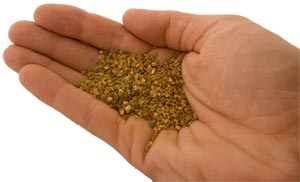 Chickens pick up grit whilst foraging, which is kept for a while in the gizzard to perform this grinding process. If your chickens are kept truly free range then they will find enough of this on their own but these days, few of us have the space or the security from predators to be able to allow them to do this naturally.
Chickens pick up grit whilst foraging, which is kept for a while in the gizzard to perform this grinding process. If your chickens are kept truly free range then they will find enough of this on their own but these days, few of us have the space or the security from predators to be able to allow them to do this naturally.
Flint (or insoluble) grit is cheap and available from most good pet or farm shops, the container you put it in costs a little more though if it is going to last.
Oystershell or soluble grit
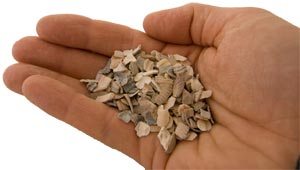 In order to form strong egg shells, chickens require a certain amount of calcium in their diet. Most of an egg shell is made up of calcium. These days, with the research that has been done for formulated feeds (available as layers mash or layers pellets), it isn’t so critical to provide oystershell grit because layers feeds contain sufficient calcium, however, it’s cheap and it’s easy to mix some in with the flint grit that they need above so it’s a good idea to provide some, in case they need more calcium.
In order to form strong egg shells, chickens require a certain amount of calcium in their diet. Most of an egg shell is made up of calcium. These days, with the research that has been done for formulated feeds (available as layers mash or layers pellets), it isn’t so critical to provide oystershell grit because layers feeds contain sufficient calcium, however, it’s cheap and it’s easy to mix some in with the flint grit that they need above so it’s a good idea to provide some, in case they need more calcium.
High production hybrid hens are capable of producing a staggering number of eggs in a year on very little feed (known commercially as the ‘conversion ratio’) so they are more likely to need the extra calcium to be able to produce the right number of eggs of sufficient quality.
If you can’t find Oystershell grit from your local store, baked, crushed egg shells will do the same job – after all, they are mainly made up of calcium! Put them in the oven for 10 minutes to dry them out and crunch them up before mixing them in to your grit hopper.
Although grit is heavy, if all else fails, you can still buy it online here. A small bag lasts for a long time.
Grit hoppers
Grit containers come in a variety of shapes and sizes – the priority is really to make sure it doesn’t get tipped over or filled up with water. There are some good galvanised grit hoppers like this one that will last a lifetime but will cost you a few pounds more to start with.

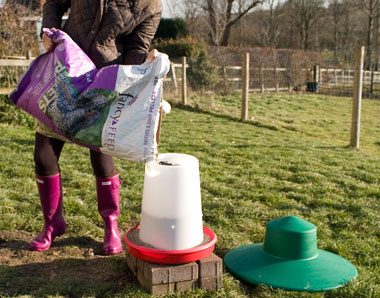
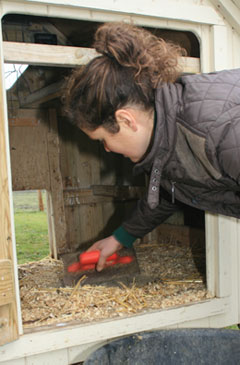

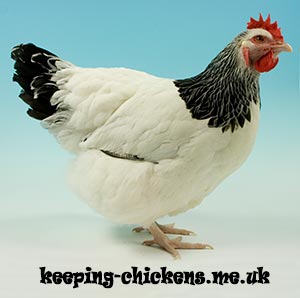
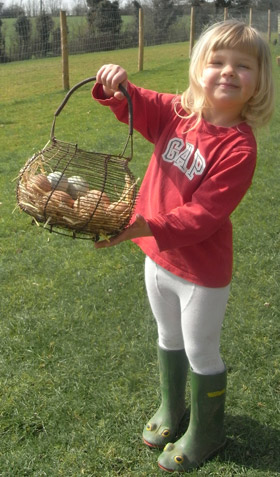
do you need to have a separate containers for grit and for feed ? or do you mix it all in?
I use separate containers because they eat them at different rates.